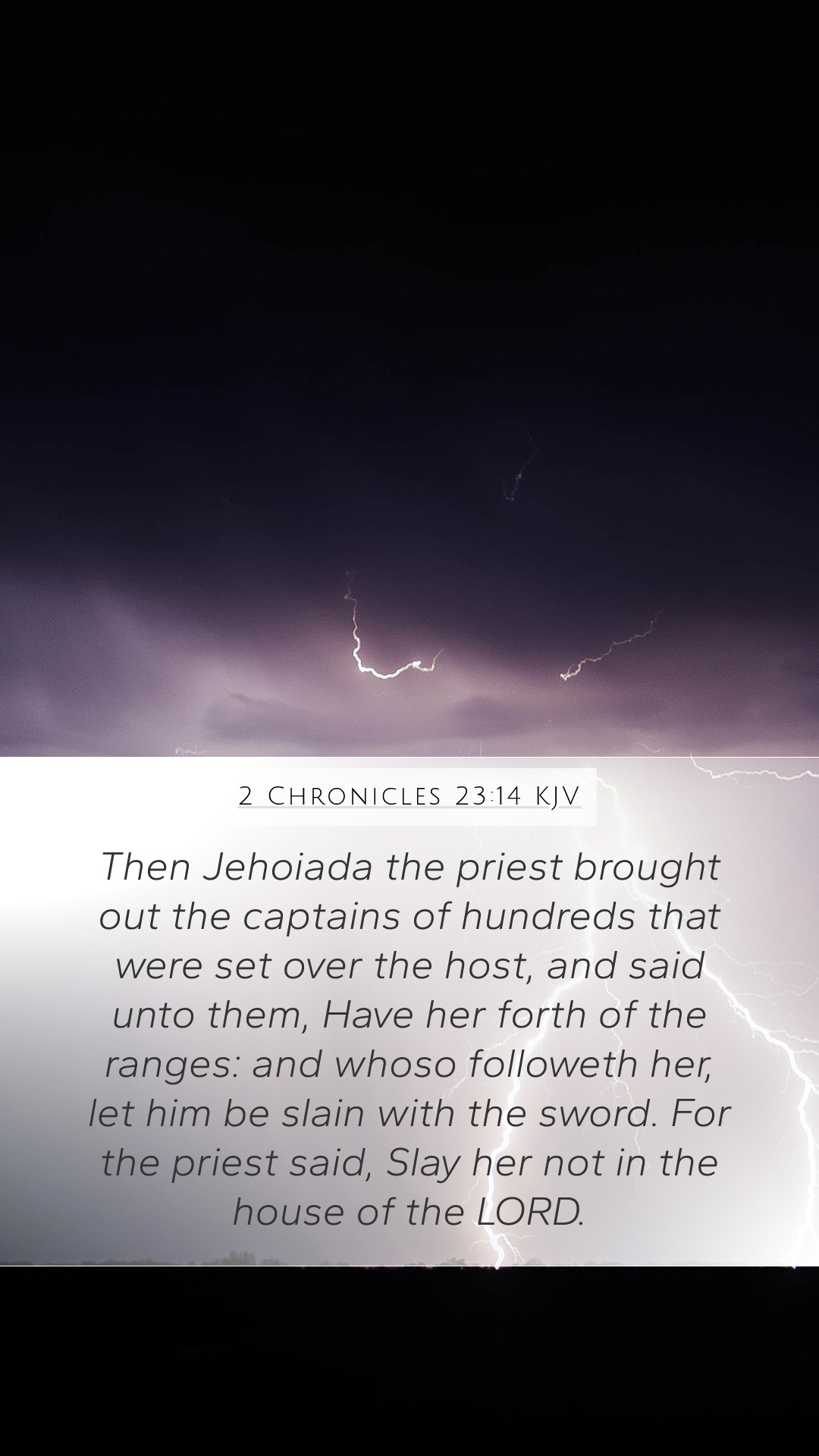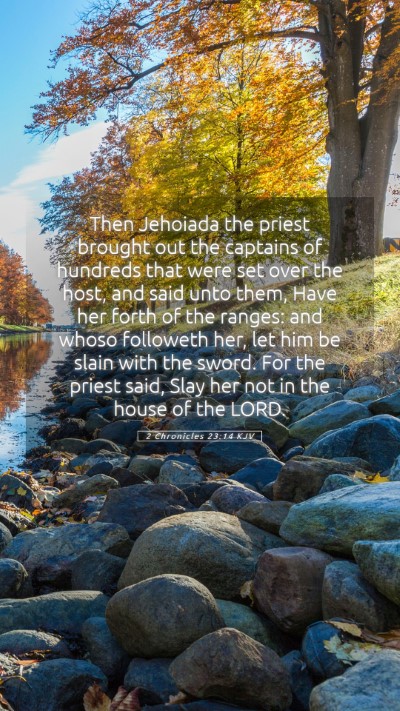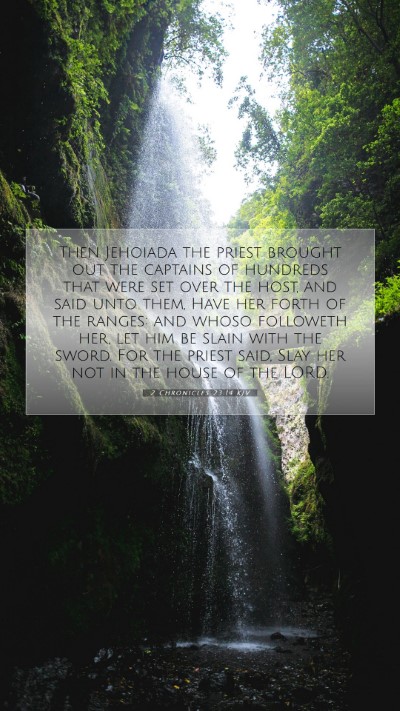Bible Verse Meaning of 2 Chronicles 23:14
2 Chronicles 23:14 reads: "Then Jehoiada the priest brought out the captains of hundreds who were set over the army, and said to them, 'Take her outside under guard, and slay with the sword whoever follows her.' For the priest had said, 'Do not let her be killed in the house of the LORD.'
Summary of Meaning
This verse unfolds a significant moment in the narrative of 2 Chronicles, showcasing the tension between good and evil, and the restoration of rightful worship in the temple of the LORD. Here is a summarized interpretation according to various public domain commentaries:
- Historical Context: Jehoiada, the high priest, plays a crucial role in the restoration of rightful worship in Judah following the evil reign of Queen Athaliah. Athaliah’s tyrannical rule is characterized by her attempts to eradicate the royal line of David and promote Baal worship.
- Authority of the Priest: Jehoiada acts decisively, calling upon military captains to carry out divine justice against Athaliah. This underscores the authority of priesthood in ancient Israel and the divine right to protect the lineage of David as ordained by God.
- Divine Protection: The instruction to slay Athaliah outside the temple reflects a reverence for the holy house of the LORD, highlighting the respect for sacred spaces in Israelite worship. The act signifies the victory of righteousness over evil, restoring order.
- Judgment and Righteousness: Athaliah’s downfall serves as a warning against idolatry and rebellion against God’s covenant. The swift and decisive action taken by Jehoiada exemplifies the importance of accountability and the restoration of true worship in the community.
- Leadership and Reform: Jehoiada’s leadership in this moment is a pivotal aspect of effective reform. He gathers the leaders and rallies them around the cause to purge the temple and nation from idolatry, signifying the communal effort towards spirituality and righteousness.
Insights from Commentaries
The commentary by Matthew Henry emphasizes the righteousness of Jehoiada’s actions, detailing how this event highlights God’s faithfulness in preserving His promises amidst chaos and rebellion. Meanwhile, Albert Barnes provides an analysis on the significance of conducting justice outside the temple, underlining the sanctity of worship spaces.
Adam Clarke refers to this act as a historical fulfillment of God’s promise, considering the political and spiritual ramifications of removing Athaliah and restoring the lineage of David. Such comprehensive insights foster a deeper understanding of the historical and theological significance of this passage.
Application and Reflection
Understanding the implications of 2 Chronicles 23:14 extends beyond its historical narrative, offering practical lessons for contemporary believers:
- Accountability: The verse encourages individuals and leadership within the church to uphold righteousness, ensuring that idolatry and sin do not take root in their communities.
- Sacred Spaces: Reflecting on how we treat sacred spaces today can lead to a deeper respect for places of worship, acknowledging their importance in maintaining our spiritual lives.
- Leadership and Reform: Leaders are called to be vigilant and proactive in ensuring integrity and godliness, much like Jehoiada. This demonstrates the importance of righteous leadership in faith communities.
Cross References
This verse connects to several related scriptures which enhance its understanding:
- 2 Kings 11:12-20 - Details the same event with additional perspectives, expanding on Jehoiada's actions against Athaliah.
- 2 Chronicles 24:2 - Continues the legacy of Jehoiada’s influence in leading the nation back to God.
- 1 Kings 18:40 - Highlights the consequences of idol worship and the importance of purging evil from the community.
Conclusion
In conclusion, 2 Chronicles 23:14 serves as a powerful reminder of the need for vigilance against evil, the sanctity of worship, and the essential role of leadership in guiding communities back to God. Through the insights derived from public domain commentaries, readers can gain a comprehensive understanding of this significant biblical event, enriching their Bible study insights and enhancing their Biblical exegesis abilities.


